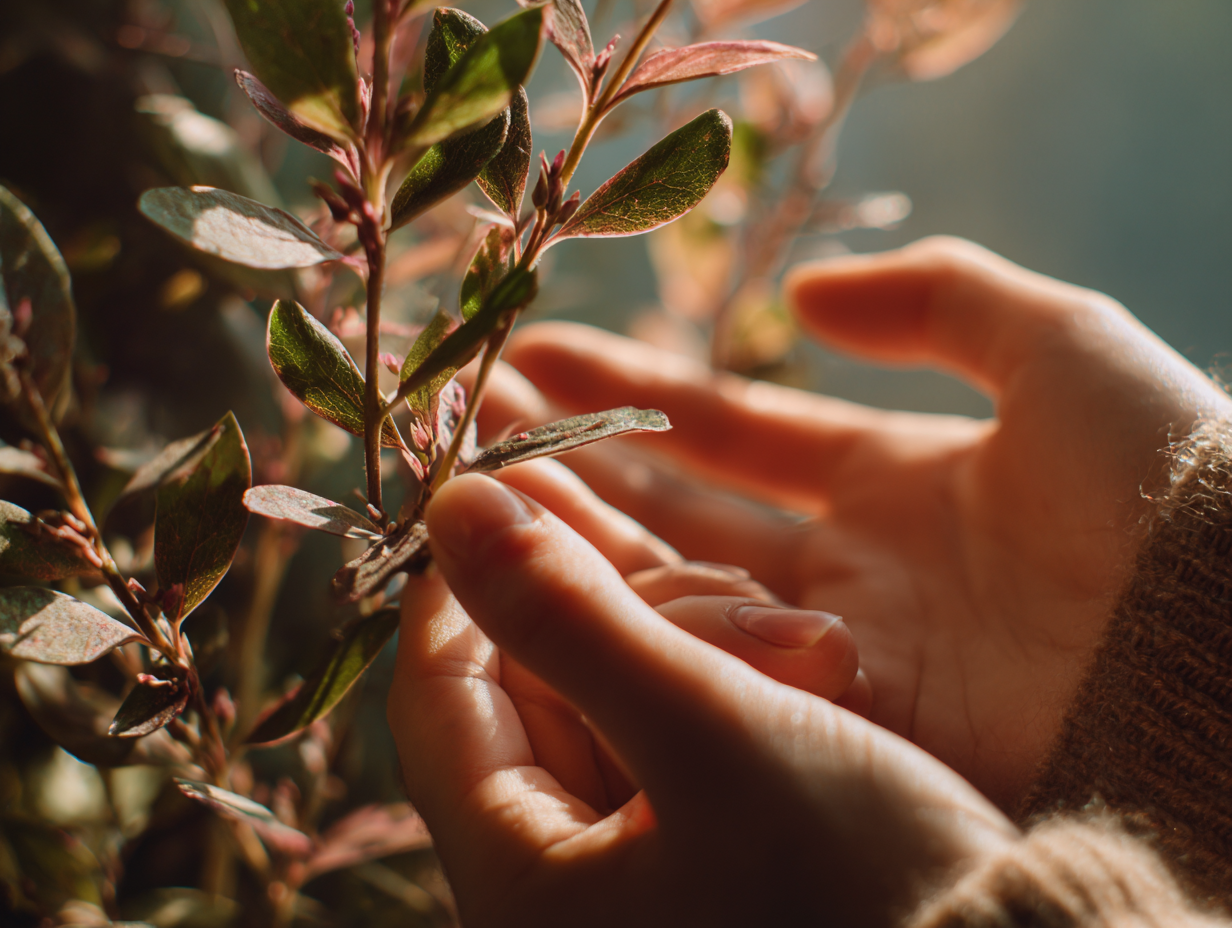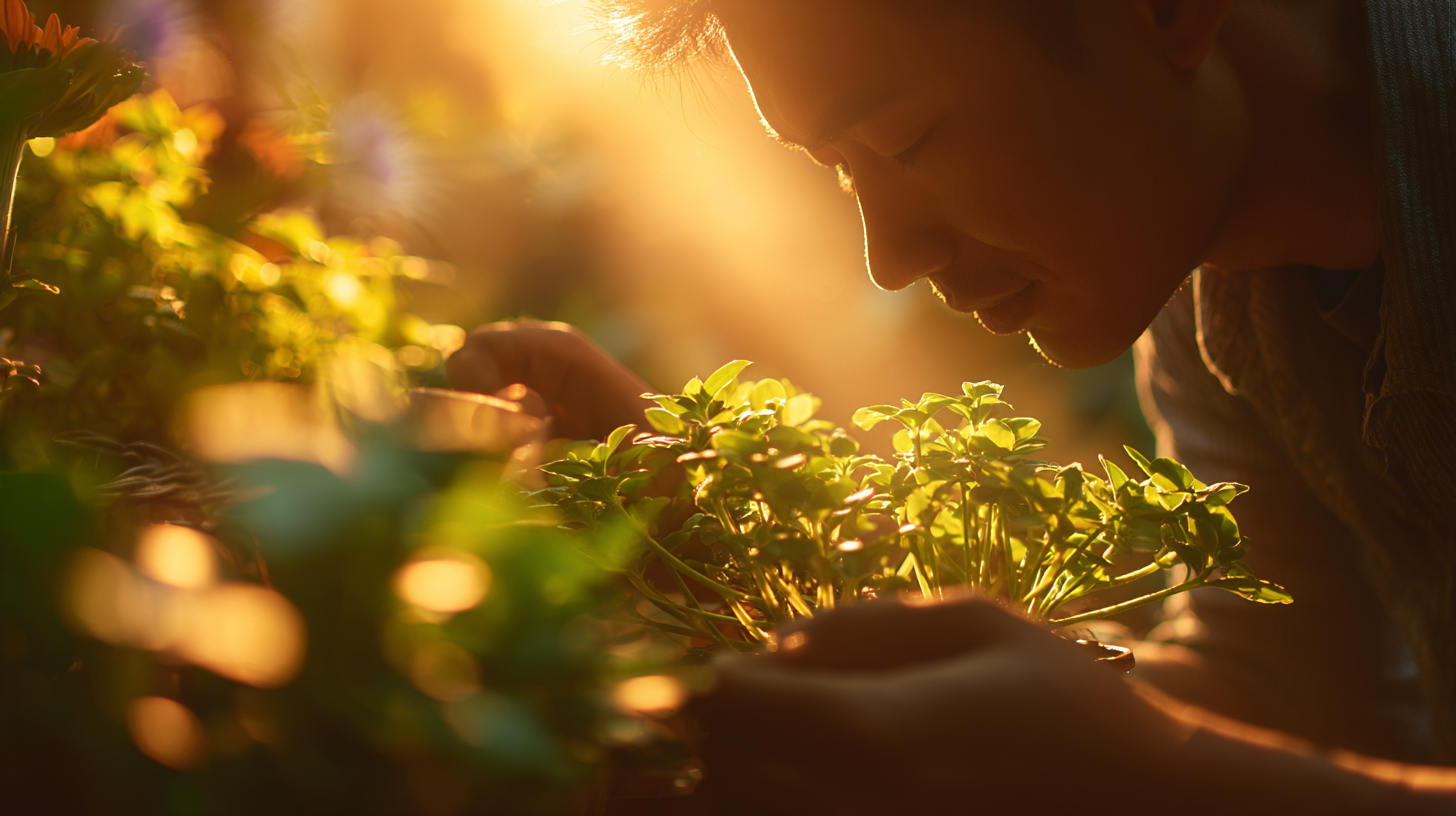Free Plant Personality Quiz
Discover what your plant collection reveals about your personality and get personalized tips for your plant parent journey.
Take the QuizWhy do we talk to our plants, worry about them when we travel, and feel genuine grief when they die? The psychology behind plant collecting reveals deep human needs for nurturing, growth, and connection with nature.
The Science of Human-Plant Bonds
Our relationship with plants isn't just aesthetic preference – it's rooted in evolutionary psychology and fundamental human needs. Research shows that caring for plants activates the same nurturing responses as caring for children or pets.
🧠 What Happens in Your Brain When You Care for Plants:
The Different Types of Plant Parents
Just as people have different parenting styles with children, plant parents develop distinct approaches to their collections. Understanding your plant parent personality can help you build a more satisfying and successful collection.
The Nurturer
Focuses on plant health and happiness above all
Characteristics:
- • Checks plants daily for problems
- • Keeps detailed care schedules
- • Prefers fewer, well-cared-for plants
- • Talks to plants regularly
- • Researches extensively before adding new plants
Motivations:
- • Strong caregiving instincts
- • Satisfaction from healing/helping
- • Need for routine and structure
- • Desire to nurture living things
- • Fear of plant loss or failure
The Collector
Driven by the thrill of acquisition and completion
Characteristics:
- • Maintains detailed plant inventories
- • Seeks rare and unusual varieties
- • Enjoys the hunt for new plants
- • Organizes collection by categories
- • Active in trading communities
Motivations:
- • Completion and achievement drives
- • Love of learning and discovery
- • Desire for unique possessions
- • Social status within communities
- • Intellectual challenge of plant care
The Decorator
Views plants as living art and home enhancement
Characteristics:
- • Chooses plants for aesthetic appeal
- • Coordinates plants with home decor
- • Creates Instagram-worthy displays
- • Invests in beautiful planters
- • Focuses on visual impact
Motivations:
- • Desire for beautiful living spaces
- • Creative expression needs
- • Social media sharing impulses
- • Connection to design and style
- • Appreciation for natural beauty
The Propagator
Finds joy in creation and sharing new life
Characteristics:
- • Always has cuttings rooting
- • Gives away plants frequently
- • Experiments with propagation methods
- • Focuses on easy-to-propagate plants
- • Active in plant sharing communities
Motivations:
- • Joy in creating new life
- • Desire to share and connect
- • Satisfaction from plant reproduction
- • Generosity and community building
- • Wonder at natural processes

The Emotional Journey of Plant Parenthood
Plant collecting is rarely a linear path. Most plant parents experience a emotional journey with distinct phases, each bringing its own challenges and rewards.
Phase 1: The Honeymoon (First Few Plants)
Everything is new and exciting. Every leaf is precious, every new growth is celebrated.
Behaviors: Over-caring, frequent checking, extensive research
Challenges: Overwatering, anxiety about problems
Phase 2: The Expansion (Building the Collection)
Confidence grows, leading to rapid collection growth and experimentation with new species.
Behaviors: Frequent purchases, trying challenging plants, sharing successes
Challenges: Overextension, impulse buying, space limitations
Phase 3: The Reality Check (First Major Losses)
Inevitable plant losses teach hard lessons about limits and proper care.
Behaviors: Reassessing care routines, seeking advice, culling collection
Challenges: Guilt, fear of killing plants, loss of confidence
Phase 4: The Maturation (Sustainable Practices)
Experience leads to wisdom, sustainable practices, and genuine expertise.
Behaviors: Curated collecting, mentoring others, focus on plant health
Benefits: Sustainable hobby, community leadership, lasting joy
Why We Anthropomorphize Our Plants
Most plant parents name their plants, talk to them, and attribute personalities to them. This anthropomorphization isn't childish – it serves important psychological functions.
🗣️ The Benefits of Talking to Plants:
Psychological Benefits:
- • Increases emotional bonding
- • Provides outlet for nurturing instincts
- • Creates sense of companionship
- • Reduces feelings of loneliness
- • Enhances mindfulness and presence
Practical Benefits:
- • Encourages closer observation
- • Helps remember individual plant needs
- • Creates routine check-ins
- • Makes care tasks more enjoyable
- • Strengthens memory and attention
The Social Psychology of Plant Communities
Plant collecting becomes even more meaningful within communities. The social aspects of plant parenting satisfy deep human needs for belonging, status, and mutual support.
👥 What Plant Communities Provide:
The Therapeutic Benefits of Plant Care
Beyond the joy of collecting, plant care provides genuine therapeutic benefits that explain why this hobby becomes so important to many people's well-being.
🧘♀️ Mental Health Benefits
- • Anxiety Reduction: Routine care provides grounding and focus
- • Depression Relief: Sense of purpose and accomplishment
- • Mindfulness Practice: Present-moment awareness during care
- • Stress Relief: Calming, meditative activities
- • Emotional Regulation: Outlet for nurturing emotions
🏠 Lifestyle Benefits
- • Routine Structure: Regular care creates healthy habits
- • Home Connection: Stronger bond with living space
- • Air Quality: Physical health improvements
- • Seasonal Awareness: Connection to natural rhythms
- • Life Skills: Responsibility, observation, problem-solving
When Plant Collecting Becomes Problematic
While plant collecting is generally healthy, it's important to recognize when the hobby might be serving unhealthy needs or becoming compulsive.
⚠️ Warning Signs to Watch For:
✅ Signs of Healthy Plant Collecting:
Embracing Your Plant Parent Identity
Understanding the psychology behind your plant collecting can help you embrace this identity more fully and create a more satisfying, sustainable relationship with your green friends.
Honor Your Motivations
Whether you're driven by nurturing instincts, collector tendencies, or aesthetic desires, all motivations are valid.
Build Supportive Communities
Connect with others who share your passion and understand the deep satisfaction of plant parenthood.
Practice Self-Compassion
Accept that plant losses are part of the journey, not failures. Every plant parent kills plants – it's how we learn.
Celebrate the Journey
Focus on the joy, growth, and connections that plants bring to your life rather than perfect outcomes.
Plant collecting satisfies fundamental human needs for nurturing, growth, beauty, and connection. By understanding these deeper motivations, we can create more fulfilling relationships with our plants and the communities that share our passion.
Remember: there's no "right" way to be a plant parent. Whether you have three well-tended plants or three hundred diverse specimens, whether you're motivated by aesthetics or science, your plant parent journey is uniquely yours – and that's exactly as it should be.
Connect with Like-Minded Plant Parents
Join our community of plant lovers who understand the deep joy and satisfaction that comes from nurturing green life. Find your plant parent tribe.
Find Your Plant Community